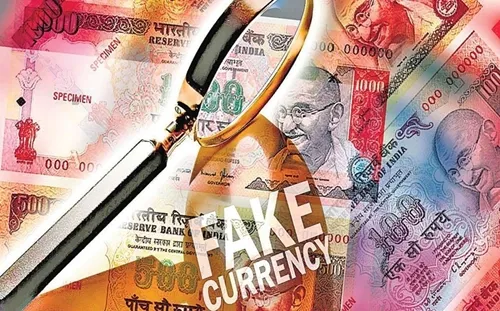NIA achieves its first conviction of 2025 in FICN case with four guilty sentenced

Synopsis
Key Takeaways
- NIA secured first conviction of 2025.
- Four accused sentenced to five years.
- Case involved Fake Indian Currency Notes.
- Initial arrests made in January 2020.
- All four pleaded guilty in court.
New Delhi, Jan 15 (NationPress) The National Investigation Agency (NIA) achieved its inaugural conviction of 2025, with the Special NIA Court in Mumbai convicting and sentencing four individuals to five years in prison for their involvement in a case concerning Fake Indian Currency Notes (FICN).
Initially, five suspects were arrested in this case.
The Directorate of Revenue Intelligence (DRI) in Nagpur registered the case on January 16, 2020, following the seizure of FICN worth Rs 13,67,500 and the apprehension of four suspects.
The NIA assumed responsibility for the investigation and initiated the case under RC-02/2020/NIA/MUM on February 10, 2020. Following a thorough inquiry, the NIA submitted a charge sheet on April 7, 2020, against the four captured suspects: Lalu Khan, Mahesh Bagwan, Randheer Singh Thakur, and Ritesh Raghuwanshi. One individual, Sohrab Hosen, hailing from West Bengal's Malda, was declared wanted.
In the course of further investigations, the NIA apprehended the absconding suspect Hosen on June 29, 2020, and subsequently filed a supplementary charge sheet on September 24, 2020. The inquiry revealed Hosen's involvement in smuggling FICNs and Phensedyl cough syrup across the Indo-Bangladesh border. Tragically, Hosen later passed away in a prison in Lucknow.
All four detained suspects - Lalu Khan, Mahesh Bagwan, Randheer Singh Thakur, and Ritesh Raghuwanshi - admitted guilt before the NIA Special Court in Mumbai. The court sentenced each to five years in prison and imposed a fine of Rs 3,000 each.










